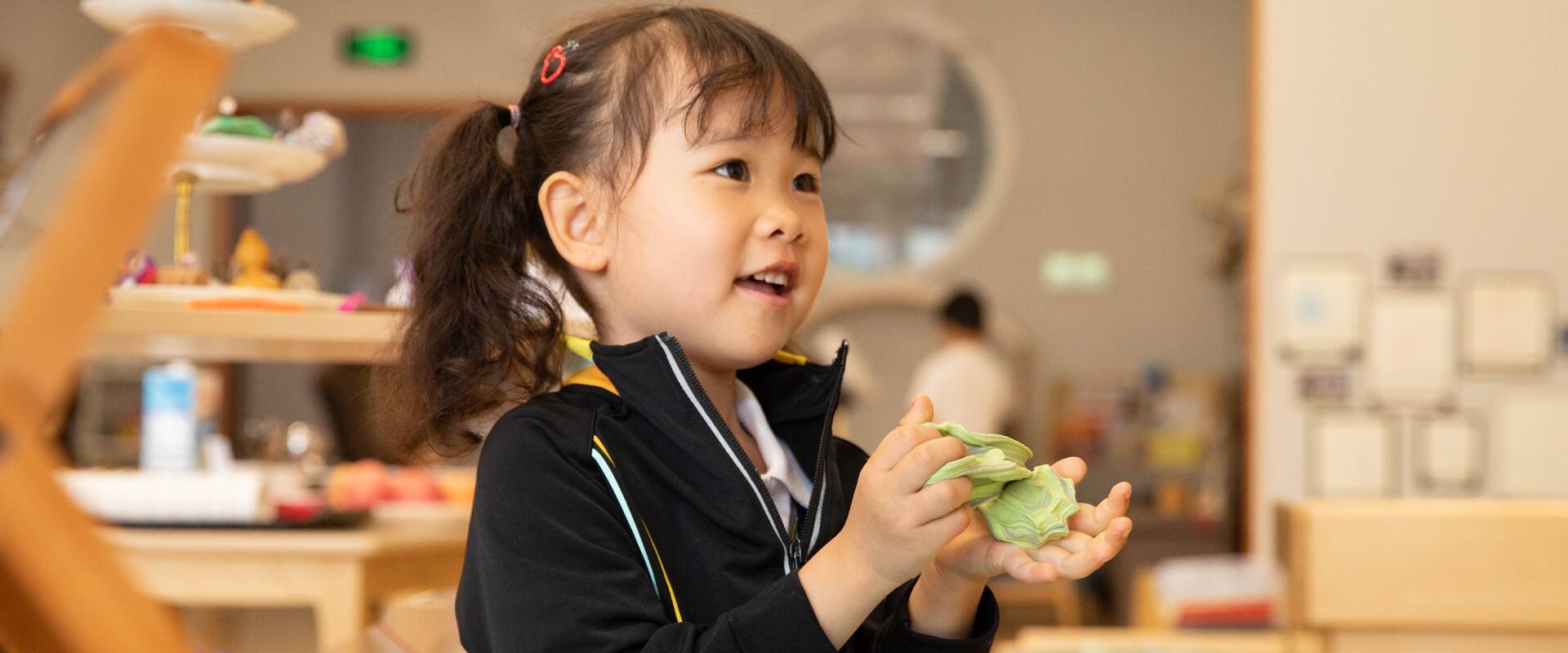
Kelly Hou
Early Years Music Teacher
Children are born musicians - from their first cry to learning language, to beating objects with their hands, to holding an object, to squat, to toddling (to name a few). In parents' eyes, these are essential and celebrated parts of the growth process. In the eyes of music educators, they are also precious moments. These behaviours are the most primitive and beautiful music. In the music course of Hangzhou Huili Nursery, we follow the nature of children, carry out 'The Elementary' music education, and guide children to take the initiative to participate in music activities and naturally express their thinking about music. At the same time, to support the all-round development of children, we will combine development goals in different fields with the 'Project-based learning' of different classes to design the curriculum content closely related to children.
Everything starts with the child and supporting their interest
We choose the aspects most closely related to children's development, such as folk songs, nursery rhymes, and proverbs, all of which children can connect to with ease. According to the characteristics of children's development, the choice of musical instruments is mainly based on rhythms, such as their bodies, original vocal instruments and Orff instruments. The children are guided to use comprehensive materials, develop the body movement rules, and establish a new concept of rhythm and dance.
We also encourage the children to bring their interests and hobbies to the Huili community. Children are keen to show their talents in the "Music Garden" and often actively sign up. In this process, both the performers and the audience can feel the power of music.
Take the initiative to learn music through hands-on practice
In the classroom, children are the main body. They find problems in an inspiring environment, explore answers for themselves, explore various possibilities, and guide students to master the learning content by asking questions and organising discussions. As all primitive forms of artistic activities involve spontaneity and creativity. One of the basic points of 'original nature' music education is creation. Mr. Orff, the German music educator, clearly pointed out, "It is the most important for children to find and create music by themselves. We believe that the creation of children's music has the same significance and value as that of music masters."
Stimulate learning motivation and support in-depth inquiry
At Hangzhou Huili Nursery, each class will have a different "Project-based learning", which means that the content of music teaching will be tailored to the different classes. Therefore, we are deeply involved in the daily education of each class, holding discussions with the children and teachers, participating in the project learning together, helping the children to find another possibility, exploring with different perspectives, and injecting vitality into the project learning.
Music Education at Huili Nursery Hangzhou
Music ability is an integral part of children's early development. In Huili Nursery Hangzhou, we design exciting and inspiring music activities for children based on the Chinese and British Early childhood development goals to promote children's balanced development in different fields.
Early Years 1
EY1 music activities mainly aim to stimulate and cultivate children's hearing, allowing them to initially feel the music's speed, strength and mood whilst encouraging them to follow their favourite music or rhythm or to sing.
Early Years 2
Music teaching activities in EY2 will add children's expression of musical feelings and their musical preferences in listening activities. Children can try to play with musical instruments to follow the rhythm of the music. Children are willing to participate in musical activities with their body, voice and movement.
Early Years 3
At EY3, children's ability to distinguish sounds has been improved, and they can gradually identify the subtle changes in sound. As a result, children can generally enjoy a wide range of content, nature and style of music works, such as dance music, march and lullaby. In addition, in the instrumental ensemble, children can have a sense of cooperation with others.
Early Years 4
Children in EY4 can sing the songs they are familiar with in the singing activities. They can sing in a natural voice, maintain correct singing posture, feel phrases and passages in music, and distinguish and process them. They can boldly use musical instruments, natural objects with different timbres, and rhythm to express the feeling of music and understanding of things. They can change the movement's strength, speed, tempo and difficulty with the change of tune.